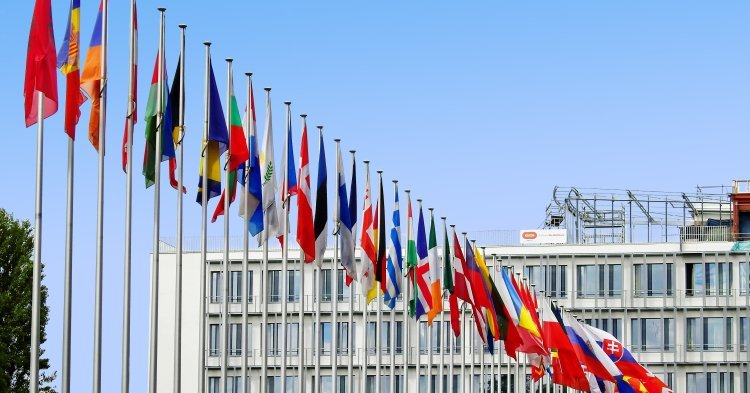Nations, when understood in general terms, are political communities, an association of people. Anderson famously defined the nation as an ’imagined community’ – literally the idea that you could not actually physically know and meet all the members of this community and confirm that you had an affinity with them, you simply had to imagine it was so. Whether you believe that nations are tied to long, historic roots or that they are relatively recent creations, communities formed by political actors like any other, it almost does not matter. The key point remains that there is nothing intrinsic to the nation that is hostile to the idea of European unity and integration.
Instead, it is the nation-state that is really the force that does most to prevent the advance of a peaceful, prosperous Europe. Nation-states are not an automatic requirement of the existence of nations. There are numerous historical examples of multi-national states. Nation-states are in fact the product of a deliberate nationalist programme. Here; nationalists declare that the nation must be kept separate from other nations, its purity preserved, and that to share decision-making with other nations would invite the death of the nation itself. The belief that we must enforce a global system of division to ensure that nations are kept apart. It is a logic we would not accept from any other community, whether racial or religious, yet is one that we obey unquestioningly when it comes to nation-states.
And so this is the real trouble with the nation-state – it inevitably acts as an incubator for nationalism. So long as you preserve the nation-state, you cannot rid yourself of nationalism because one is the direct product of the other. And that means that the evils of nationalism, its hate and violence, will also forever infect your politics. In Europe, where we have suffered so much at the hands of nationalist fantasies, this should act as a serious warning. At best you can hope to suppress it for a time but only in the knowledge that it could surge back into the forefront of your state’s politics and culture at any time. This is a reality we are seeing unfold again in Europe today. The only long-lasting solution must be to move away from the nation-state model, to break out of the nationalist box that imprisons our attempts at imagining political organisation fit for the 21st century, not the 19th.
Can it be done? Beyond the academic and moral flaw of blaming nations rather than nation-states, there is also a tactical flaw. To attack the wrong target, and to pick a target that many people are quite attached to, is inevitably counterproductive when trying to advance the goal of a united Europe. The key is to break the link between the mere existence of the nation, the presence of a coherent community, and the nation-state. We must remind people that they can have one without the other, that they can enjoy the sense of belonging to a wider community without imposing borders between themselves and other communities. We can live together without being the same. Or, in the words of the European Union’s motto, we can be ’united in diversity’.

1. On 7 February 2023 at 09:07, by Théo Stosse Replying to: The problem is not nations, but nation-states
Replying to: The problem is not nations, but nation-states
Hi, that was a well written article.
Although, there is a pointon which I can’t agree with you.
People seem to believe that bigger is better, more stable. In my opinion, it tends to create a huge, single point of failure. No matter how smart, a human without a time machine will make mistakes. These mistakes, could easily lead to our downfall. Nature proved that size makes fragile, push an elephant, chances are he will break a leg, whereas the mouse wouldn’t event realize such a fall and go on with her life.
Have a nice day,
Théo
N.B. My English is kinda terrible so forgive me in advance.
Follow the comments: |
|
